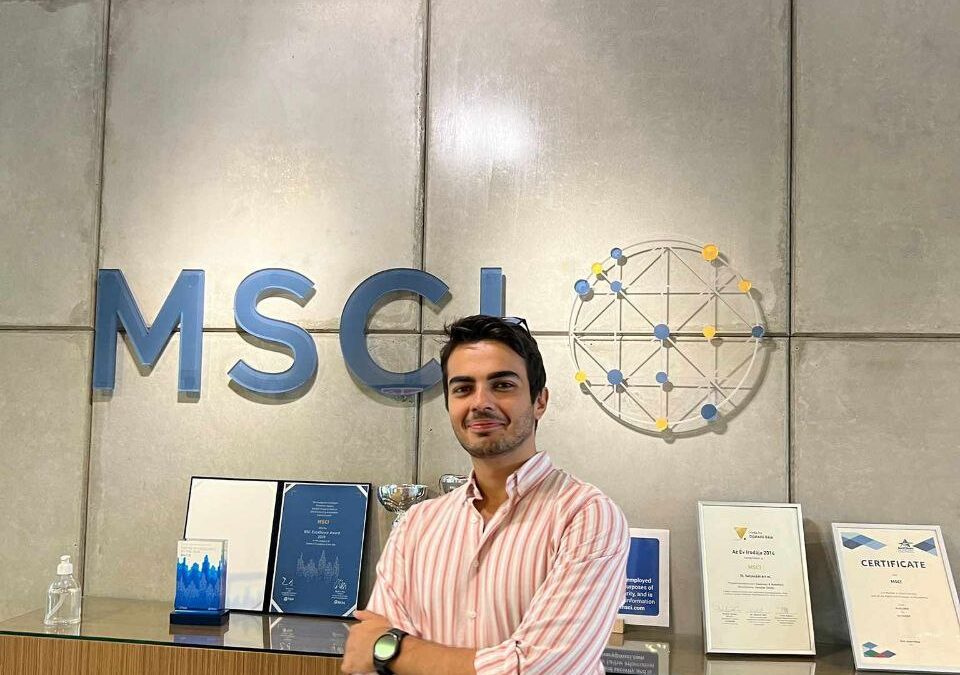Interview with Burak #2
Previously, you could read the first part of an interview with a member of VIK Faculty Union. If you haven’t read that yet, we recommend reading that first: https://www.imt.bme.hu/an-interview-with-burak/. In this interview you can read about social life, working experience in Hungary and sport classes.
What do you think about that social life is also as important as studying at BME?
I think the student clubs are a huge deal at BME. Check out the Hungarian clubs and events – they mix things up and make BME special. The good news is, that the communication between different groups is getting better. Over the years, there have been more chances for foreign students compared to when I first started. I keep saying, that being part of clubs is key. They’re not just about studying; they’re where you connect with people. In clubs, you chat, socialize, and get to know folks. It’s becoming more open, even if the official steps might not show it yet.
So, if you’re all about moving things forward and taking action, it’s a process you’ve got to be a part of. But as things get more international, there’s got to be a shift for a more cultural mix. If we don’t get on board with that, growing here is going to be a real challenge.
What helped you to make your life easier in Hungary?
Some of my foreign friends are putting in the effort to learn Hungarian because it makes their lives a whole lot easier. When you’re dealing with things like healthcare or finding a place to stay, you turn to Google to gather useful info about living in Hungary. Sure, there are websites where you can switch from Hungarian to English, but there are plenty where you can’t do that.
That’s why I’m all in on the idea of making two Hungarian courses mandatory for everyone. It helped me grasp the basics. These courses are handy because now, after a few years of living in Hungary, I can understand about 30% of Hungarian conversations. Many students don’t know, but there are two additional Hungarian classes that can be chosen. Although their level is the same as the first two classes, they can be very good for revision. It just makes getting around and connecting with locals way smoother.
Do you have any work experience?
I’m currently employed, and I’m considering staying in Hungary to gain more work experience. The initial struggle is landing that first internship; it’s the toughest part. But once you get through that, proving your English proficiency and having basic programming or engineering skills can open doors to a job that fits your profile. The easiest jobs to find are usually in the IT field.
So, if you’re into studying engineering domains, Hungary is a great place. There are solid job opportunities in IT, and you don’t need to be an expert right off the bat. Having experience from school or a previous workplace is a big plus. It’s like, if you nail that first job, it’s a crazy good experience, especially if you’re working in a team. Plus, coding is in English, which makes things smoother since the language itself is based on it.
Do you have any personal experience with sports classes?
In my experience, foreign students like to connect with Hungarian students shouldn’t hesitate to explore sports classes as a shared activity.
Unfortunately, there might be some misconceptions. But let me tell you, they can check Neptun, there they can enroll in as many classes as they want for a small fee – it’s practically nothing (8500 HUF/semester). I believe these sports classes could be an excellent opportunity to get to know one another.
Last semester, I tried climbing with a group of about 16 people. It was a blast; everyone was cool. The coach did his best to translate, and some students even helped him out. In certain sports, there’s not much that needs translating. Overall, it’s a great platform to build connections and get to know each other. If you don’t know which class to take, you can buy a so-called B-type pass. For this you need to submit a Neptun request and pay the fee for the pass (also 8500 HUF/pass). With this, you can visit any sport class in the semester 16 times. If you used all your 16 occasions, you can of course buy a new one.
For the last question, what do you recommend to other students based on your experiences?
Don’t hesitate to join wherever you’d like. While it might be challenging to reach out, the difficulty doesn’t mean they won’t welcome you. I strongly encourage this approach because it’s when you realize you’re not just a student learning thing; you’re also gaining the experience of being part of a university like BME.
Thank you for the interview, I really think it will be useful for a lot of students.
I really hope you’ve enjoyed this interview with Burak and found at least some parts useful. Next month there will be another interesting one coming, so don’t forget to check out the website and the Facebook group.

